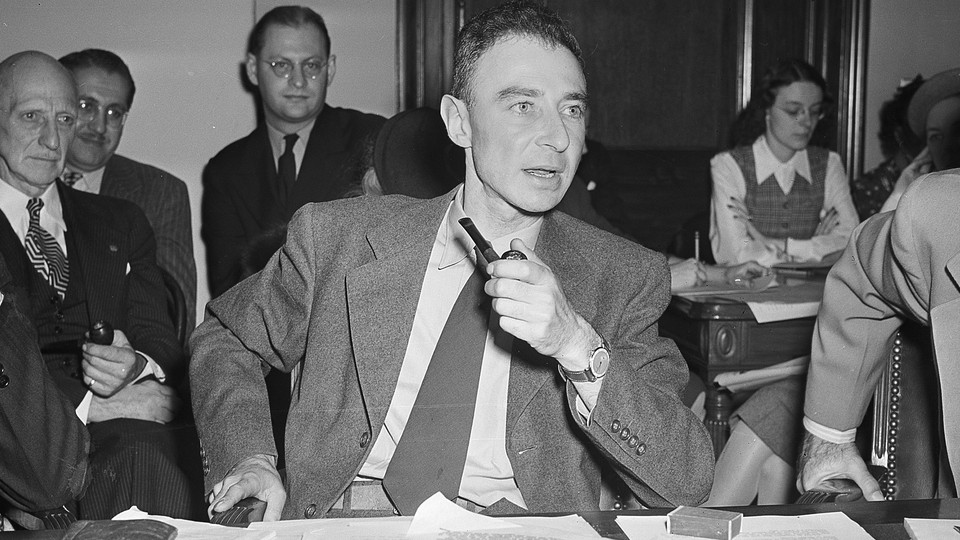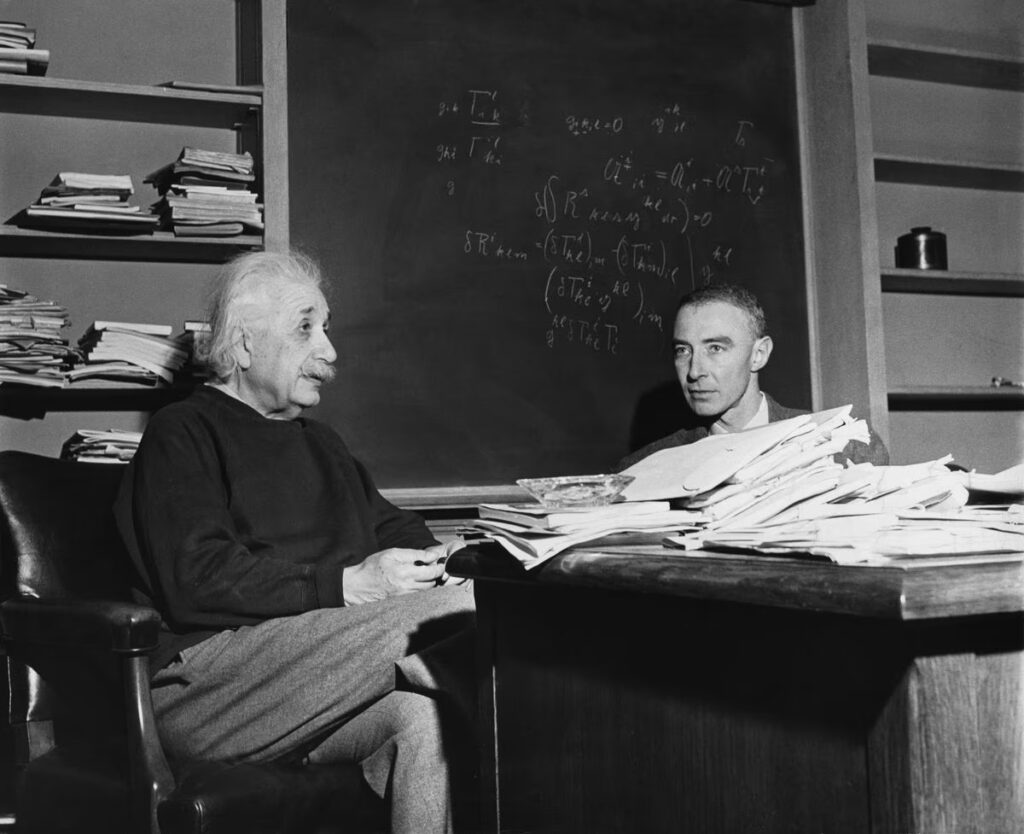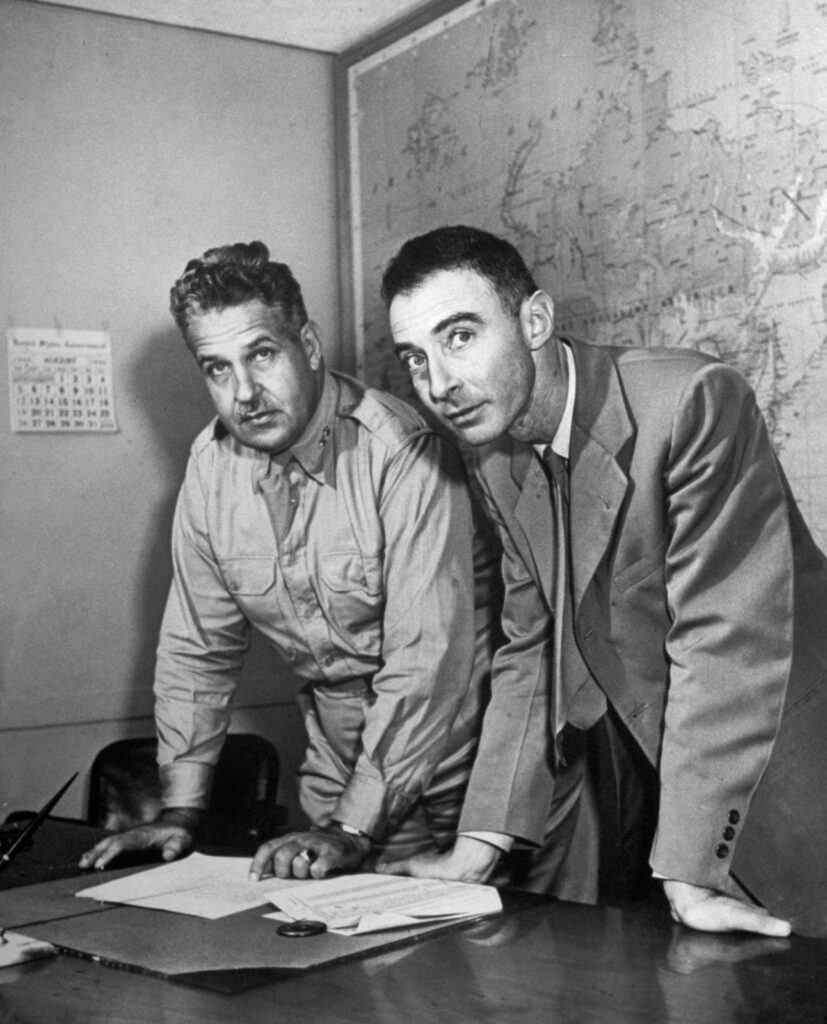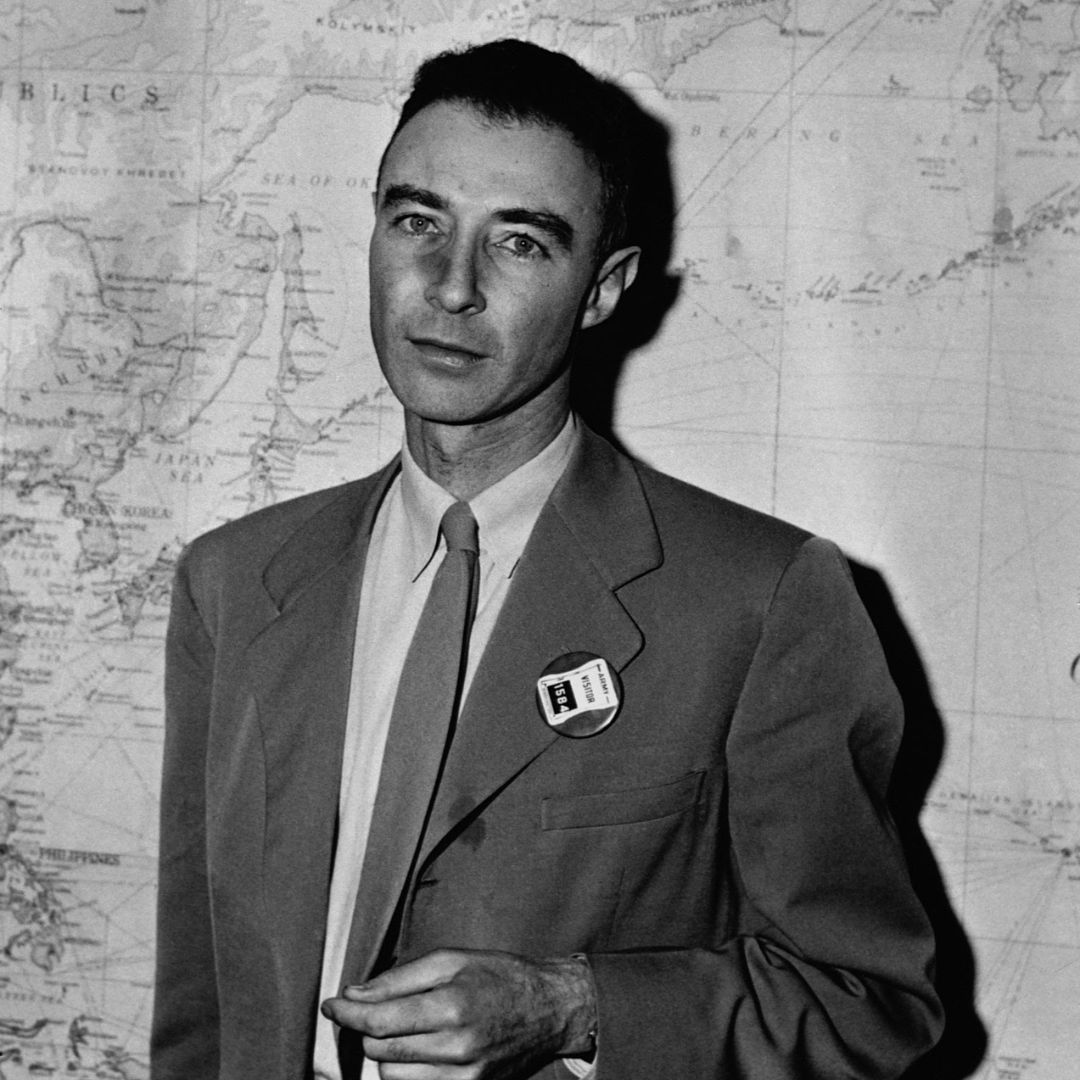Recently, Christopher Nolan’s movie “Oppenheimer” was released worldwide. It is based on the life of J. Robert Oppenheimer. The movie is based on the book American Prometheus: The Triumph and Tragedy of J Robert Oppenheimer.

J. Robert Oppenheimer was an American scientist. He studied physics and played an important role in the development of the first atomic bomb. He is often known as the “Father of the Atomic Bomb.”
The Nazi Party took control of Germany at the start of the 1930s. Albert Einstein and other scientists were forced to flee the Nazis. These experts alerted the U.S. administration that Germany was trying to build an atomic bomb during World War II. The Manhattan Project, a research project to create an atomic bomb, was organised by the American Army in 1942. Oppenheimer was appointed the head of a lab associated with the Manhattan Project. The lab, in Los Alamos, New Mexico, produced the first atomic bomb in 1945. Under this project two bombs, named Fat Man and Little Boy, were developed. These were dropped by the U.S.A. on two Javanese cites known as Hiroshima and Nagasaki to stop the Second World War.
Also read about, All about The Football Legend, ‘Pelé’
Interesting facts about Robert Oppenheimer:
1. J. Robert Oppenheimer was born on April 22, 1904, in New York City, USA, to a wealthy German-Jewish family.
2. From a very young age, Oppenheimer was very intelligent. He learned to read at an early age. He was not even a teenager when he was able to study and understand advanced topics like calculus.
3. Oppenheimer was fluent in several languages, including German, French, and Sanskrit. He had a passion for literature and could quote poetry in multiple languages.
4. He studied at Harvard University and later earned his Ph.D. in physics from the University of Göttingen in Germany.

5. Oppenheimer made significant contributions to quantum theory and quantum mechanics, particularly in the field of quantum electrodynamics.
6. He became a professor at the University of California, Berkeley, where he played a crucial role in establishing the Lawrence Berkeley National Laboratory.
7. After the war, Oppenheimer became an advocate for international control of nuclear weapons and spoke out against the development of the hydrogen bomb.


8. Oppenheimer had ties to left-wing and communist-leaning organizations during the 1930s, which later led to security clearance issues during the McCarthy era. In the 1950s, he faced accusations of being a security risk due to his past associations with left-wing groups and was subject to a highly controversial security clearance hearing. Despite protests from prominent scientists, Oppenheimer’s security clearance was revoked in 1954, effectively ending his involvement in government science.
9. Following the revocation of his security clearance, Oppenheimer returned to teaching and research at Princeton University. In 1953, Oppenheimer was instrumental in setting up the Institute for Advanced Study in Princeton, which became a leading center for theoretical research.
10. Throughout his life, Oppenheimer received numerous awards and honours, including the Enrico Fermi Award and the Presidential Medal of Merit.
11. J. Robert Oppenheimer passed away on February 18, 1967, in Princeton, New Jersey, at the age of 62.
12. These facts provide a glimpse into the fascinating life and career of Robert Oppenheimer, a complex and influential figure in the history of science and the development of nuclear weapons.
Watch Full Video On, Evolution of the Indian National Flag

